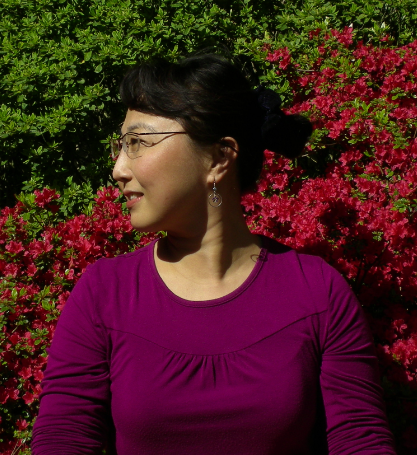Letters to the Editor
by Jing Liu ~ May 31st, 2006. Filed under: What others are saying.How many of you know about and have read Asian Pacific Post, a free bi-weekly newspaper. I am a regular reader of it because it focuses on what is happening in the Pacific Asia and the Asian community in Canada. Its March 23, 2006 issue carried an editorial entitled What has happened to the Taiwan Affairs Act. It challenged the Conservative government by proposing that the Act be debated in the House so that it can become law regulating the relationship between Canada and Taiwan. After reading the editorial, I sent a letter to the editor, expressing my disagreement to the Act and what went wrong with the editorial. My letter was published in the April 6, 2006 issue of the paper. Expectedly, a rebuttal by Mr Hsu to my letter was published in the following issue (April 20, 2006). There are three major arguments in the rebuttal. First, self-determination is the rule as recognized in the UN Charter. Second, Taiwanese don’t want to be ruled by the autocratic regime of China who doesn’t even show respect to its own people. Third, Canada, a country priding herself on democracy and human rights, should support Taiwan. Facing the challenge, I felt obliged to continue the verbal and intellectual fight which was published in the May 11, 2000 issue. The following are the two letters of mine to the editor.
I mentioned this event here because I feel very unhappy that it looks as if we spoke for the Chinese government when we are actually speaking for the Chinese people. There are people out there who take advantage of the autocratic regime of China for achieving their own interests. Having said so, I hope you guys would understand me better why I said so and so at the meeting last week.
Re: “What has happened to the Taiwan Affairs Act”, March 23, 2006
I don’t think it wise for Canada to get involved in the Taiwan affairs, a matter the 1.3 billion Chinese people and a good part of the 23 million Taiwanese consider their internal affairs. From a historical perspective, no one denies that Taiwan used to be a part of China. It was ceded to Japan when China lost the first Sino-Japanese War (1894-1895). China regained Taiwan after the Second Sino-Japanese War (1937-1945). One would also agree that the separation of Taiwan from China is the result of both the Chinese Civil War (1945-1949) and the ideological confrontations between the East and the West during the Cold War.
Too much international involvement in the Taiwan issue, especially from western countries, would undoubtedly make the Chinese people recall the bitter humiliation and exploitation they had suffered from imperialism for more than a century since the first Anglo-Sino Opium War (1839-1842). It is true that China now is ruled by an autocratic regime, but when you ask any Chinese whether he or she would see the reunification of Taiwan with China, I bet you would get a firm and positive answer. If Taiwan, supported by western countries, was to be declared an independent country, Chinese would take it as a new humiliation. If the 1.3 billion Chinese and part of the 23 million Taiwanese took actions to fight against the humiliation, it would not be a good thing for the world.
So it would be wise to leave the Taiwan issue with the Chinese themselves. Chinese are a patient nation. They will eventually find a solution to the issue with their wisdom accumulated over a period of 5000 years of recorded history.
Henian E
Richmond
Re: “What has happened to the Taiwan Affairs Act”, April 6, 2006
The focal point of my letter (see Reader’s Corner, April 6, 2006) is that there will be war if Taiwan is to be declared an independent country. Actually, Mr. Hsu (see Reader’s Corner, April 20, 2006) has all my sympathies when he touches a sentimental chord, presenting Taiwan as the week and bullied. However, I trust reality more than sentimental touches. What is the reality regarding to the Act then?
First, it is one thing when the Conservative Party as the opposition to make the Act, and it is another when they are in power. Second, the Chinese regard the Act as a serious breach of one of the fundamental principles underpinning Sino-Canadian diplomatic ties. If it was to become law, the Sino-Canadian relation would be severely impaired. Third, there isn’t such a thing as “moral correctness” in world politics. Here I recommend a new book, Failed States, by Noam Chomsky who details how the United States, who claims to be number one country upholding moral correctness in international affairs, does things morally incorrect. Fourth, self-government does not necessarily mean independence. An immediate example is the self-government of the First Nations in Canada. Fifth, the majority of Taiwanese care about peace and prosperity more than anything else. This was evidenced in the local elections last year in Taiwan when the DGP (pro-independence), the governing party, lost most of the seats to the National Party (pro-no-provocation). Finally, the Taiwan issue is a historical wound of the Chinese. International involvement in the issue is just like adding salt to the wound. Reunification of Taiwan with China is the will expressed loud and clear by the 1.3 billion Chinese, and this will has nothing to do with the Chinese autocratic regime. The Chinese will fight against the deprivation of what they consider as their own at whatever cost and with whatever means.
Henian E
Richmond, BC

January 16th, 2007 at 12:17 pm
Lao E! Please call me @646-322-2286 or e-mail me.